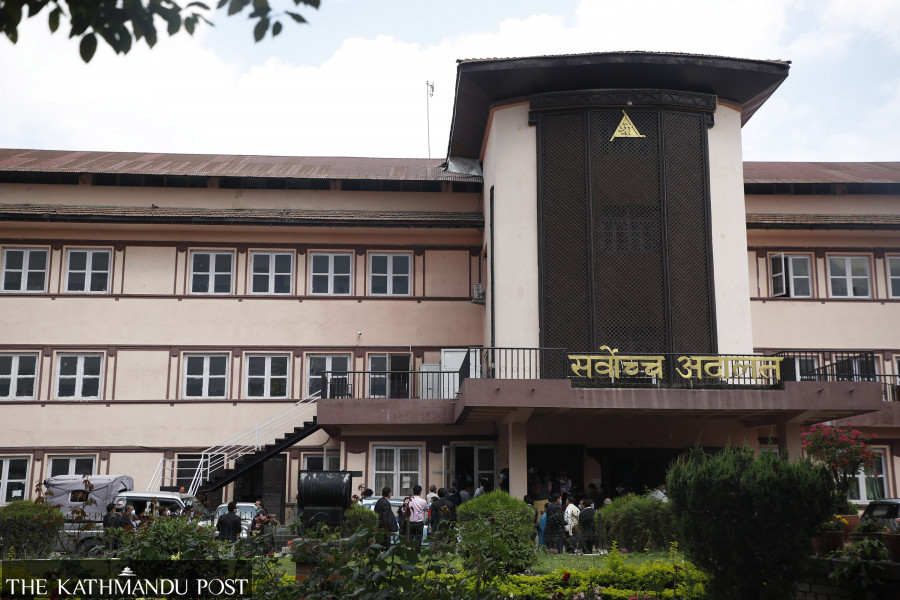Editorial
If it pleases the court
The judiciary, which is the last refuge of the people, cannot remain in the eye of a storm for too long.
When the Supreme Court invalidated KP Sharma Oli’s twin crimes of dissolution of Parliament and reinstated it both times, the top court’s decision was undoubtedly a victory for democracy and justice. In the latter verdict, the court defenestrated Oli, paving the way for forming a new government under Sher Bahadur Deuba. It was a lesson on how authoritarian tendencies of political leaders were not welcome in a parliamentary democracy. The political drama that began with Oli’s irresponsible act in December last year had finally culminated in his inglorious ouster in July this year and brought the democratic process back on track. Or so it seemed.
As Chief Justice Cholendra Shumsher Rana faces serious allegations of bargaining for constitutional and executive positions in return for favourable decisions with political leaders, those of us who welcomed the apex court’s decisions are left with an ethical dilemma: Are wrong means justified if the end is right? What are we to do with a decision that has righted the wrong even though the intentions of the person who made such a decision were wrong? On what moral basis should the current government continue to function if the very judicial verdict through which it came into being comes under question, especially if the chief justice resigns on moral grounds?
A whole week has passed without the Supreme Court performing its functions as justices have boycotted their benches, and hearings have been affected. Even as calls for impeachment grow louder each day, the chief justice shows no sign of relenting as he knows that the current political equation is not in a position to gather a two-thirds majority to pass an impeachment motion. If there is one party that has serious grudges against the chief justice as well as singular parliamentary strength to introduce an impeachment motion, it is the CPN-UML, led by Oli. But Oli and his party have not shown much interest in pushing the agenda, for the ruling coalition may not come on the same page when it comes to passing the motion.
Alternatively, the ruling coalition itself is on no moral high ground to introduce such a motion, for any damning indictment against the chief justice is an indictment against the alliance as well. What is also interesting to note is that it was the Nepali Congress-CPN (Maoist Centre) coalition that introduced an abortive impeachment motion against Sushila Karki, when she was the chief justice in 2017, for “flouting judicial norms and interfering with the work of the government”, among other things. With the ruling coalition failing to come out strongly against the chief justice, and with the Supreme Court justices, Nepal Bar Association and Supreme Court Bar Association pushing for his ouster, the stalemate is only poised to drag on and on. As a result, it is the justice system itself that is in the dock. The judiciary, which has often been the last refuge of the people of a fledgling democracy like ours, cannot remain in the eye of a storm for too long.




 13.12°C Kathmandu
13.12°C Kathmandu














